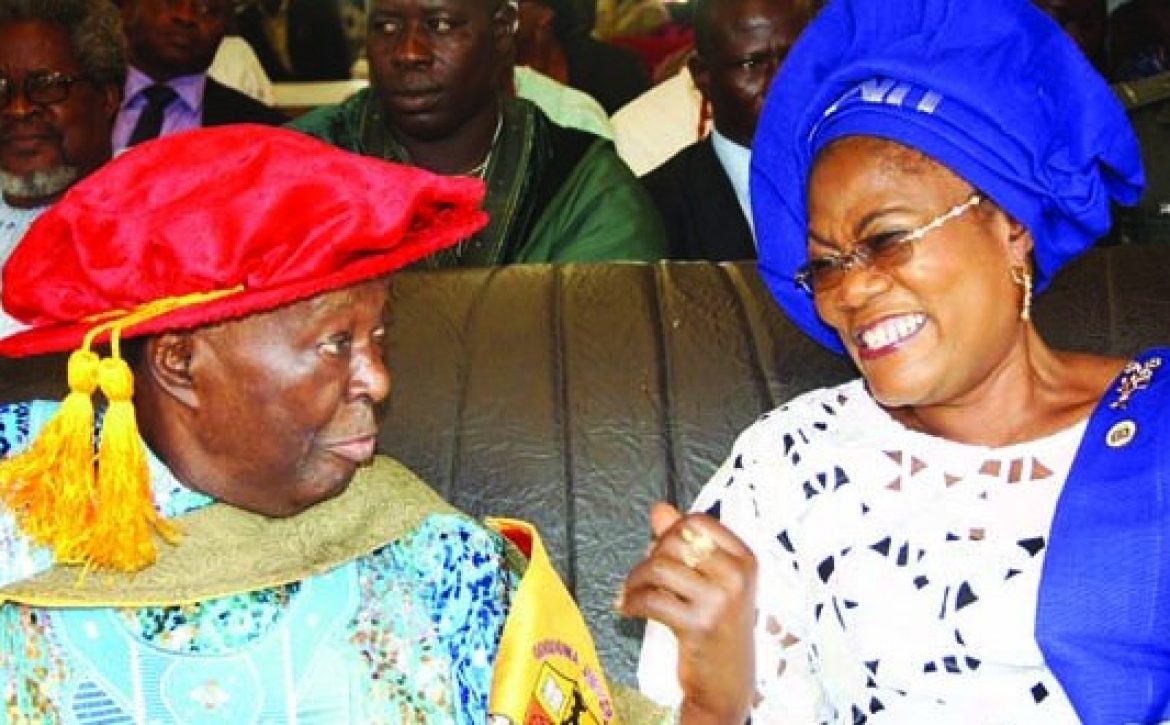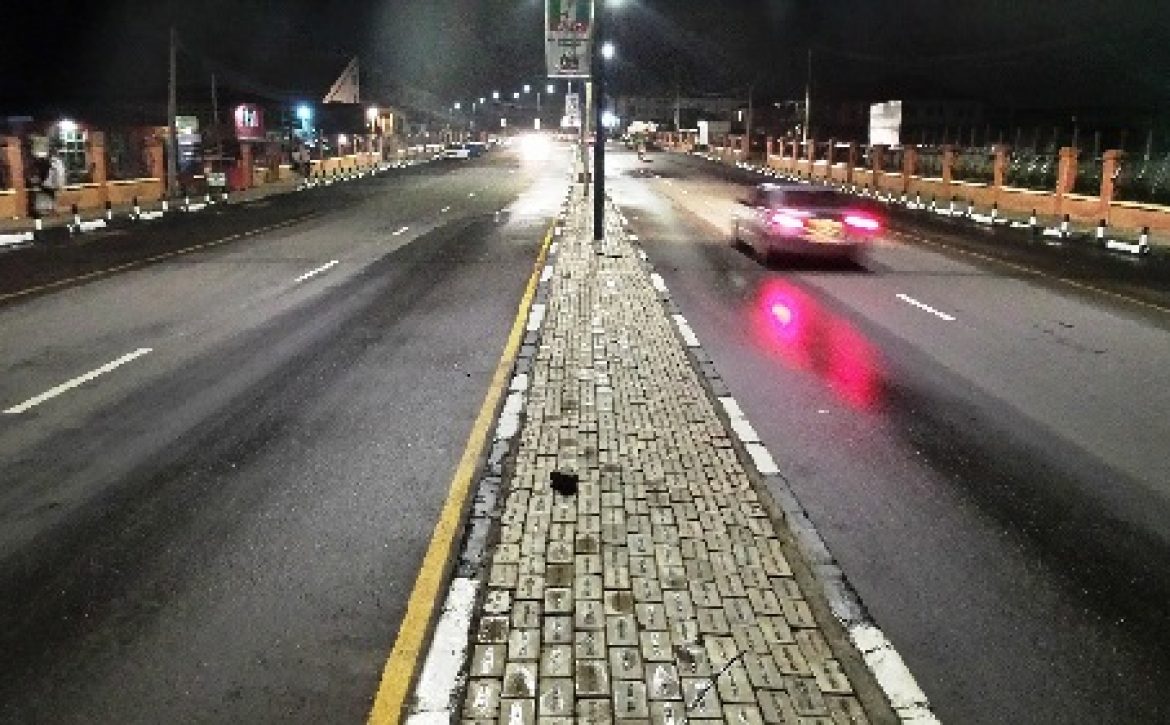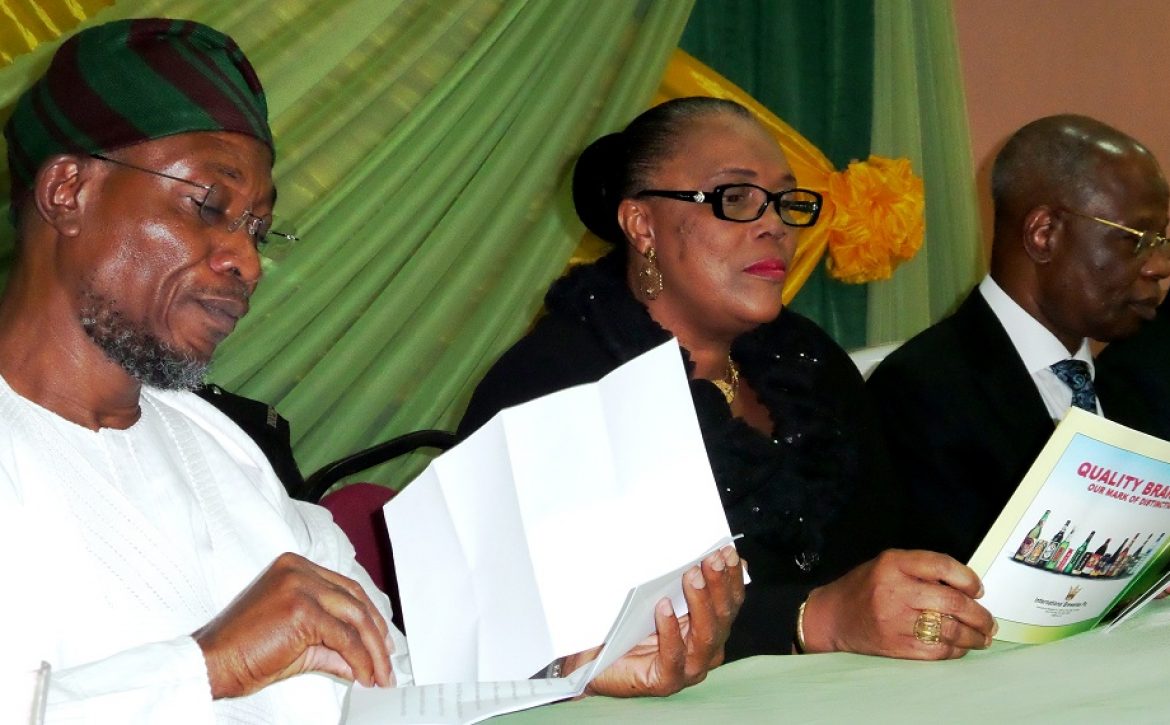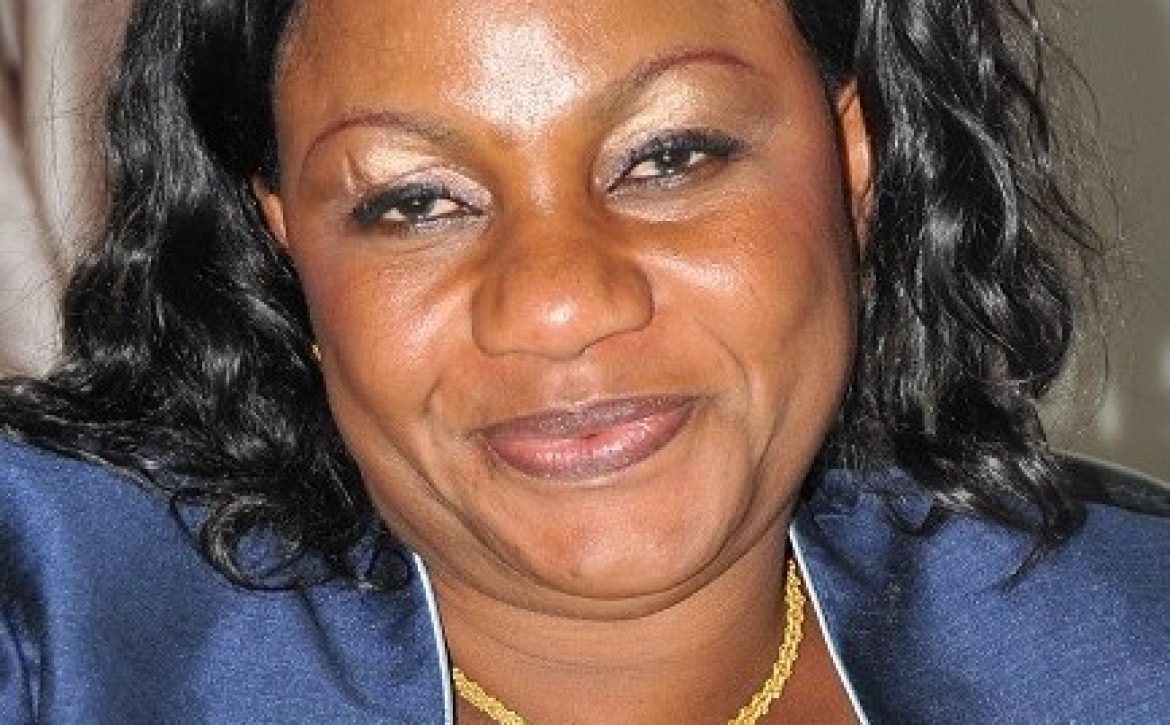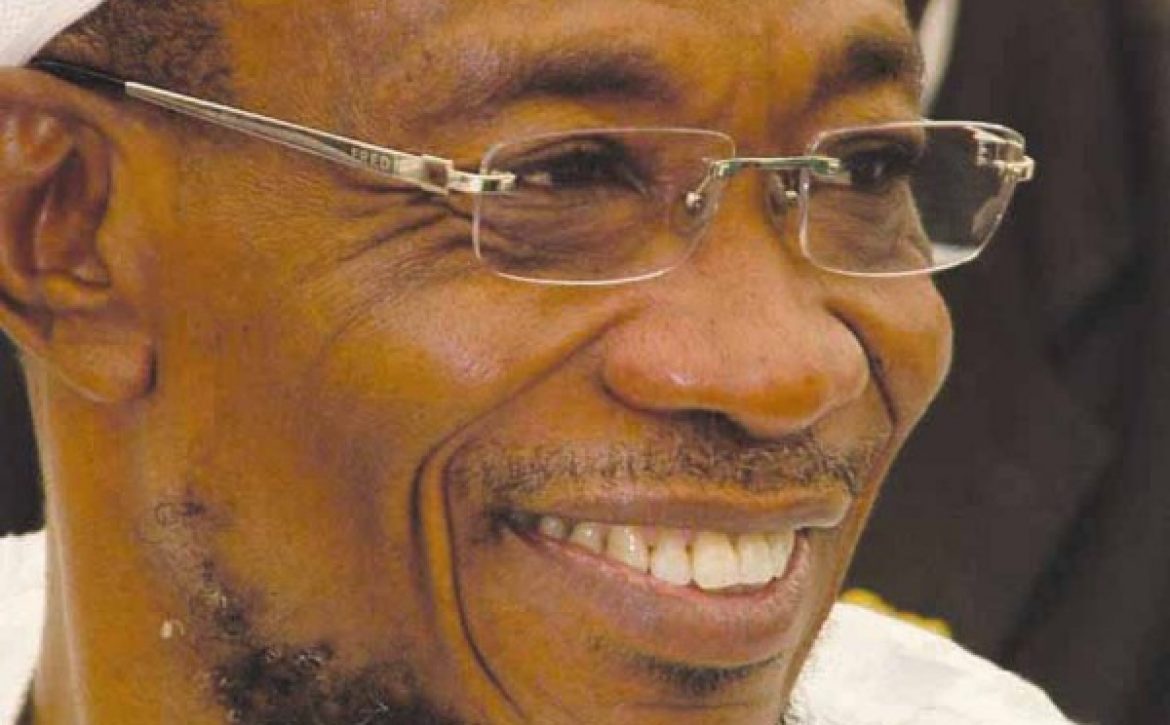
Today marks the third anniversary of the Ogbeni Rauf Aregbesola administration in the Osun State. OLAJIDE OMOJOLOMOJU takes a panoramic view of how the administration has fared in keeping with its promises to the people of the State of Living Spring.
The primary responsibility of any responsible government anywhere in the world is the general well-being and security of its citizens. This the Rauf Aregbesola-led All Progressives Congress, APC, administration in the State of Osun has held in high esteem as it has kept its promises with the people of the state.
The Osun’s experience in the spheres of infrastructural and human capital development in the last three years is worth applauding when compared to what Governor Aregbesola met on ground and what he has been able to do. Unusual happenings are unfolding in all sectors in the state, with the Aregbesola administration’s midas touch, which has completely transformed and changed the status of the state.
On inauguration exactly three years ago, Aregbesola pledged a friendly government that was totally committed to unlocking the latent potentials of Osun people. This promise he has kept. In the last three years, the educational sector of Osun has completely been transformed and its status changed.
The transformation in that sector was the outcome of the education summit spearheaded by renowned Nobel Laureate, Prof. Wole Soyinka and other stakeholders, convened by the current administration shortly after assuming the mantle of leadership of the state on November 27, 2010. Prior to the inception of the present administration in the Osun, public education had been so badly managed that only pupils whose parents could not afford the financial implications of private schools were left in the public schools.
The students, especially those in primary schools were roughly dressed and mal-nourished. School buildings were in dilapidated state, students’ performance both at the internal/external examinations were abysmally poor.
There were no instructional materials, while tuition fees in the state-owned tertiary institution was beyond reach of most Osun citizens. But today, some success stories are believed to have been recorded in the sector owing to some drastic steps taken by the government in solving the problems.
Steps taken to nip the rot in the education sector in the bud by the Aregbesola administration include: the provision of two pairs of unified school uniforms to each of 750,000 pupils in all the public primary and secondary schools across the state to boost the morale of the students and further promote unity among the public schools in the state at the cost of N800m; the injection of N1.8bn into the running of basic education in the state, including the provision of examination and running grants as well as education instructional materials for public schools; the injection of N30bn to give a new lease of life to the structures and classrooms under which pupils studied, whereby the state government is constructing 170 new model schools across the state to replace the dilapidated buildings with state of the art facilities expected to enhance and stimulate the teaching and learning environment.
Another remarkable feat in the sector was the introduction of the famous ‘Opon Imo,’ a tablet designed after the ipad, which contains the senior secondary syllabus, including Yoruba traditions and culture, past questions of the West African Examination Council, WAEC, National Examination Council, NECO and Joint Administration and Matriculation Board, JAMB.
Other innovations in the sector include the rejuvenated school feeding programme, tagged O’MEAL, reduction in the fees paid by students in all the five state-owned tertiary institutions, from N42,000 to N25,000 for those in polytechnics and colleges of technology and from N205,000 to N100,000, N155,000 to N75,000 and N130,000 to N75,000 for law and medical students, sciences students and social sciences and arts students respectively in the state university and the scholarship granted to 98 medical students of Osun State University for their clinical courses so as to complete their medical programme in far away Ukraine.
It is unarguable that Osun remains one of the few states in Nigeria which can be adjudged to be peaceful and with the lowest crime rates, simply because the Aregbesola’s government places high premium on security of lives and properties.
Believing that security engenders growth and development, the state government set up dedicated crime response team, nicknamed Swift Action Squad, SAS, now visible in strategic areas in the state as well as identified troubled sports.
Government also equipped this special squad with five Armoured Personnel Carriers, APCs and 25 patrol vans for surveillance. Government also constructed two state-of-the-art police stations and multi-force security control centre. Not done yet, additional 100 patrol vans were also to be provided for the SAS and seven more police stations to be built.
Currently, a state-wide distress management system, which would allow security agency to respond to distress calls within 40 minutes, is being developed so as to guarantee effective and efficient crime detection, prevention and control.
About 90 percent of the Nigeria’s over 150 million people are said to have been living below the poverty line. Aregbesola government’s response to this is a structural empowerment programme that targeted both the young and old. Among these intervention programmes are: Agba Osun: Over 1,600 vulnerable elders across the state have been selected through a comprehensive enumeration as beneficiaries of the state’s social security for the most vulnerable old people in the state. Each of these elders are placed on monthly stipend of N10,000 for their upkeep and forestall the ugly trend of these old people roaming the streets begging.
Mass empowerment of youths: With its first 100 days in office and in keeping with its promise, the Aregbesola administration employed 20,000 under the Osun Youth Empowerment Scheme, OYES, as volunteers for community service and placed on monthly stipend of N10,000 each.
Through OYES, about 5000 youths trained to acquire special ICT skills through the OYESTECH. Just last month, they all graduated with some of them employed by private organisations and some other empowered by government through soft loans to start their own business. The OREAP programme also empower 600 youths in the government’s agric enterprise academy as well as sponsored 50 youths to Germany to acquire advanced farming skills.
In order to improve the physical condition of urban areas of Osun State, the Aregbesola administration has provided N100 million counterpart fund to the UN-Habitat initiative, to explore the state’s urban renewal potential, and also focus on ruralurban developmental potential. Under this initiative, Osogbo, Ife, Ilesa, Ejigbo and Ikire, among others, have been earmarked for urban renewal by the state government.
With the payment of the state’s contribution of N100m last year, the UN-Habitat has agreed to give technical support in the area of effective deployment of a training programme, which will address areas like unsuitable urban growth, problems affecting the environment and growing inequalities between the rich and the poor and serious distortion in the form and functions of cities, among others. With its belief in the popular maxim: health is wealth, the Aregbesola administration is working to ensure that every citizen of the state should effortlessly have direct access to healthcare delivery.
To this end, government plans primary healthcare clinic within 10 kilometres radius of every Osun town with special attention to the needs of children, women and elderly; a functional general hospital within 20 kilometres radius of human habitation and referral hospital within 30 kilometres radius of human settlement.
All nine state-owned hospitals and 12 comprehensive healthcare centres have been rehabilitated for optimal functionality, easy access and quick service delivery, with the construction of additional 74 primary health centres across the state. Government has also carried out six medical and surgical missions to offer free treatment and surgeries to several thousand of citizens.
Apart from physical development, government has also focused on human capacity building in the health sector by empowering about 400 youths as paramedics to join the Osun Ambulance Service Authority.
Government has also embarked on the training and retraining of medical personnel with six of them on sponsorship to the University of Magdenburg Teaching Hospital, Germany. With the pervading peace and tranquillity in the state, Osun has become investment destination for potential investors, both local and international, who have also taken advantage of the veritable investment carrot dangled before them by the Aregbesola administration.
Dagbolu as a commercial hub is a midregional market for the entire South West. Situated less than five kilometres outside Osogbo, it is expected to be a logistic village where various warehouses would be specifically built for relevant investors and manufacturers so that their goods would be sold to the people of the state at the exact prices they are being sold at Oke Arin in Lagos, for instance, and other major markets in Lagos. There are also international markets for ready-made products.
Currently, Ayegbaju International Market, located at the old governor’s office and Aje International Market, sited at the state Trade Fair complex are examples of how the state government has been transforming Osun.
NATIONAL MIRROR






